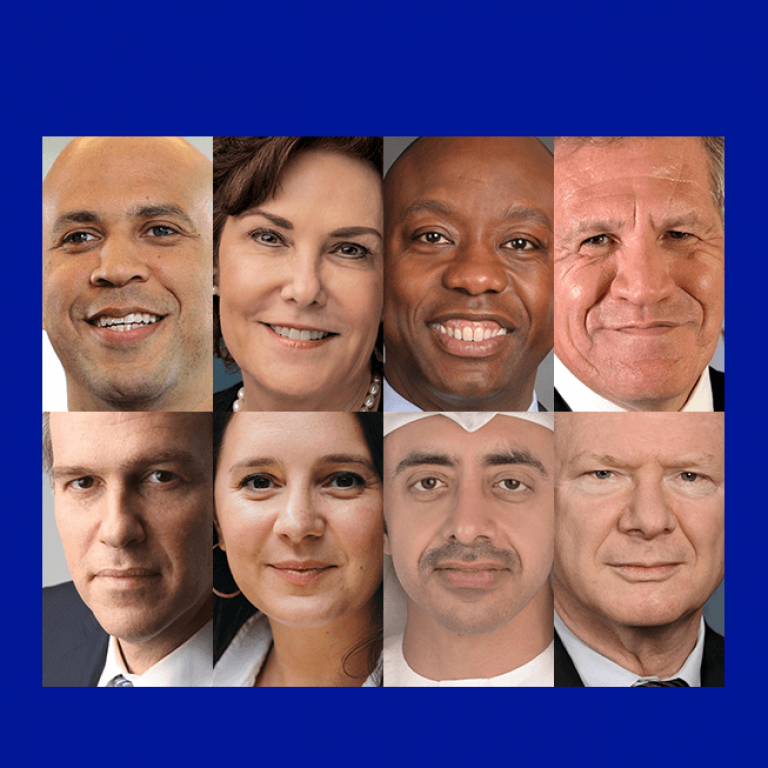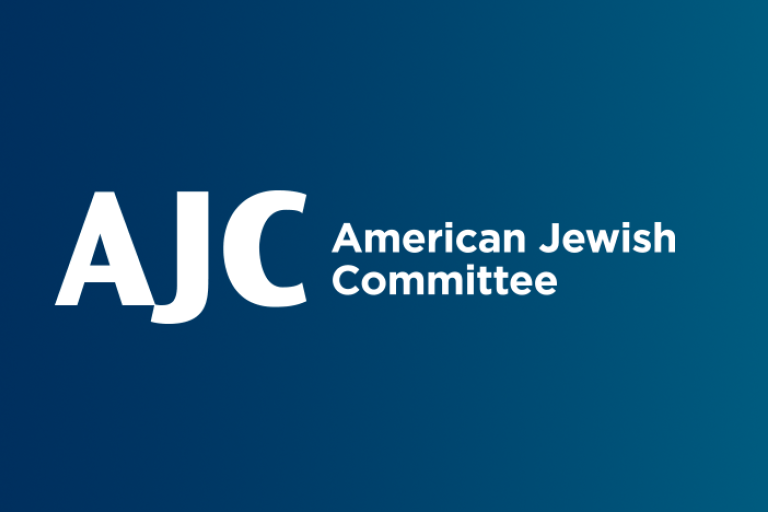June 9, 2021 — New York
The remarkable achievements of Dr. Ahmed Shaheed, the United Nations Special Rapporteur on Freedom of Religion or Belief, were recognized today at the American Jewish Committee (AJC) 2021 Virtual Global Forum in a conversation between him and Felice Gaer, Director of AJC’s Jacob Blaustein Institute for the Advancement of Human Rights (JBI).
“Dr. Shaheed, we deeply appreciate your personal courage and conviction, and, especially, we recognize your role as an effective and courageous advocate for human rights,” said Gaer. “You said antisemitism threatens not only Jews but the foundations of democratic societies. You recognized the danger of antisemitism in a way that none of your UN predecessors did, and you called on governments, companies, and even the UN to do more to fight antisemitism.”
Two years ago, Shaheed published and presented to the UN General Assembly the world body’s first stand-alone report on global antisemitism as a human rights concern. AJC called the report “historic.” Since then Dr. Shaheed has continued to raise the alarm about the persistent threat of antisemitism, including during the COVID pandemic.
Dr. Shaheed told the worldwide AJC Virtual Global Forum audience that he will follow up on his historic report by presenting to the UN an action plan on how to combat antisemitism before his Special Rapporteur mandate ends on October 31, 2022.
Explaining what moved him to sound the alarm on antisemitism, Shaheed, a former foreign minister of Maldives, said: “I found a serious lack of attention to human rights violations faced by Jewish communities. It is very strange given the fact that one of the key factors of the rise in religious hatred globally was violence against Jews. The number of attacks targeting Jews is not only heartbreaking, but is disproportionally high.”
“Antisemitism is often propagated by influential political leaders. It is the oldest form of religious hatred. It is global. It occurs across the entire political spectrum, and it is growing,” he continued. “Although it takes many forms, at its core is a conspiracy theory, a scapegoating, a dehumanization that is egregious and highly destructive of democracy.”
Shaheed said that “parts of the UN fan the flames of this intolerance” and that reforms are needed “to ensure Israel is not treated any differently than other member states.”
He has called on “the UN Secretariat to take the lead in combating antisemitism through education, awareness-raising, promoting peer-to-peer learning, to use the IHRA working definition to combat antisemitism as a global human rights challenge, and to not regard antisemitism as a threat to Jews alone.”
As Maldives foreign minister, Shaheed led the Maldives to embrace universal human rights standards, including announcing a moratorium on the death penalty. He established contacts between the Maldives and Israel. But after hardline Islamists came to power he went into exile in the United Kingdom.
Prior to his current position, Shaheed served as UN Special Rapporteur on human rights in Iran from 2011-2016. He still monitors violations of the right to freedom of religion or belief in Iran in his current UN position. “Iran is possibly the clearest example of how a country with great promise can be ruined by religious intolerance and disregard for human rights,” said Shaheed. Even Shia clerics who criticize the Islamist regime are punished, but his main concern is “the Bahai community who are facing systematic persecution designed to destroy the existence of that community in Iran,” said Shaheed, adding that “this persecution has now extended to other countries where Iran has some influence.”
In closing, JBI’s Gaer observed that “Dr. Shaheed has strived to ensure that whenever human rights are under threat, there is an effective international response.”
“JBI has made exemplary contributions to advancing human rights through the United Nations, especially in strengthening the effectiveness of the UN’s human rights mechanisms,” said Shaheed, who noted that this year marks JBI’s 50th anniversary.
JBI works to combat religious intolerance, opposes all forms of discrimination, and protects human rights around the world. It engages with governments, diplomats, the United Nations and other international organizations, and civil society partners. AJC’s Virtual Global Forum featured a video tribute to JBI’s 50 Years of Achievements.





